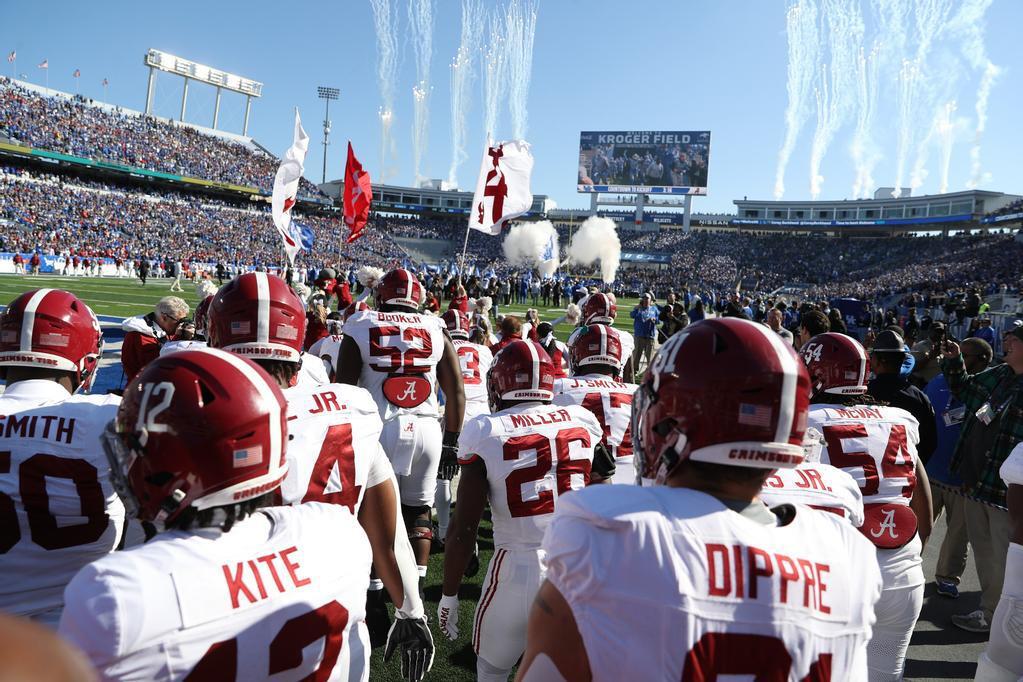Rule by experts, the modus operandi of the World Economic Forum (WEF), has come to college football. The College Football Playoff’s (CFP) exclusion of undefeated Florida State (FSU) empowers the CFP committee’s experts over the teams and their accomplishments.
Previous CFP selections among Power Five conference teams have respected the loss column. Controversial prior selections, such as Ohio State over Penn State in 2016 and Alabama over Ohio State in 2017, were for one-loss teams over two-loss conference champs.
Previously the committee merely broke ties among Power Five teams with equal losses. The committee’s task this year seemingly was to choose between Alabama, Georgia, Ohio State, and Texas for the last spot, given three undefeated conference champs.
The committee’s judgment now trumps on-field results. Quarterback Jordan Travis’s injury provided grounds for excluding FSU. The committee judged that, without Travis, the Seminoles were not one of the four best teams. Winning every game – including the ACC championship game against a top 15 team with their third string quarterback – was not enough.
I will not second guess the committee’s assessment. Instead, let’s focus on empowerment of the committee at the expense of teams. In the same way, WEF elites desire to make decisions for humanity.
The people versus the elites is today’s fundamental issue. One element of this struggle involves restructuring our market economy, as electric vehicle mandates illustrate. Numerous news stories observe car dealerships pushing back on the Biden administration’s plan due to poor sales. But consumer preferences only matter in a market economy, not an elite-controlled economy.
Football reminds us of a further truth about sports and markets: only competition determines the best. Alabama can vindicate their selection on the field. Consumer choices determine whether gas or electric cars better serve their transportation needs.
The CFP has operated under a presumption of parity among the Power Five, and sensibly so given that most Power Five teams play one nonconference Power Five opponent each year; the entire Southeastern Conference (SEC) played 16 this year.
A small sample size does not allow meaningful inferences. Technically this means that patterns in the results cannot be distinguished from chance. Judgments about relative conference strength may consequently reflect observer biases. Even complicated computer models still draw only on the small number of games.
The limits of expertise provide another reason to not empower elites. While the failures of socialism demonstrate the limits of economic expertise, the college football experts who thought Oregon would beat Washington in their Pac-12 Championship rematch demonstrate another. That’s why they play the games!
The simplest explanation for Alabama’s selection this year might have been an implicit automatic bid for the SEC, the winners of the last four national championships. As Coach Saban said, how can you have a playoff and not include the SEC?
The small sample size problem supports giving a conference an auto bid. The SEC has repeatedly proven themselves in the CFP, while any inference that the conference appears “down” draws on a small sample. The SEC’s 7-9 mark against Power Five opponents suggests that this is down year, but should this small sample trump prior CFP performance?
We see here another important issue: the value of rules announced in advance. Any plausible criteria for a conference to earn auto bid status would have awarded the SEC one. We make life decisions and athletics departments schedule games based on how we expect others to act and decide. Formal rules improve our ability to plan, and in this case would have let other conferences know they were competing for three playoff spots.
Expansion of the CFP next year renders the specific issues surrounding FSU’s exclusion moot. But the roles of experts and rules are transcendent. Next year might witness the inclusion of a three- or four-loss team over a two-loss team. And looming more significantly is who matters in college football and society: the participants or the experts.
Daniel Sutter is the Charles G. Koch Professor of Economics with the Manuel H. Johnson Center for Political Economy at Troy University and host of Econversations on TrojanVision. The opinions expressed in this column are the author’s and do not necessarily reflect the views of Troy University or the policy or position of 1819 News.
Don't miss out! Subscribe to our newsletter and get our top stories every weekday morning.










